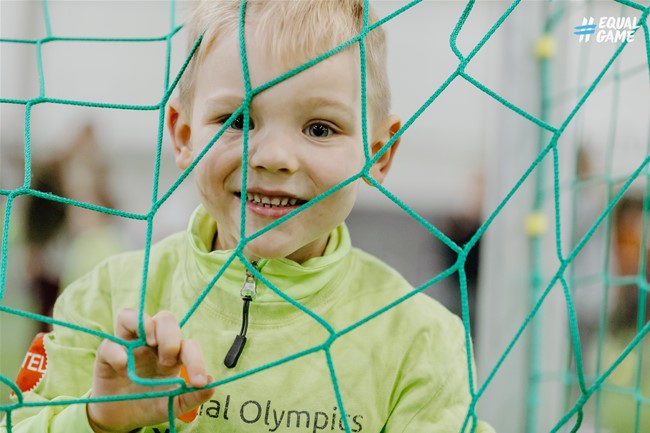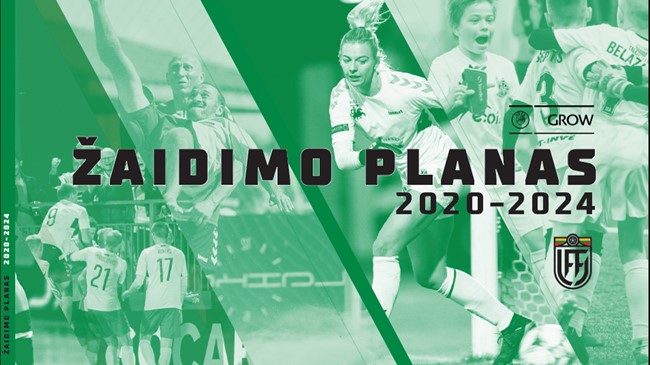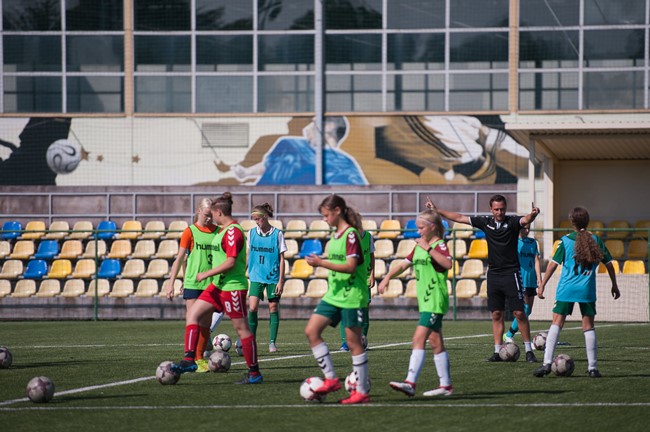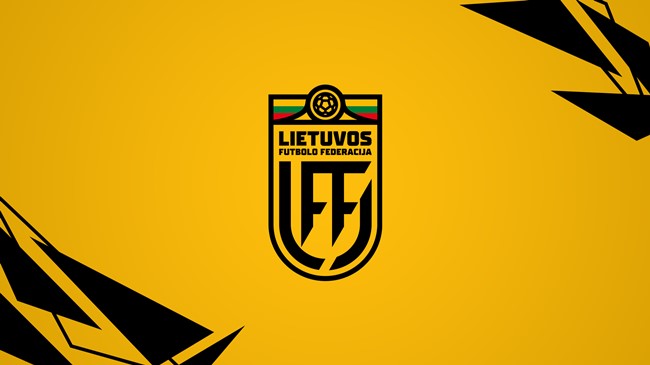Newly-appointed Lithuania coach Edgaras Jankauskas told UEFA.com about troubles in Moscow, goal scoring debuts, late Mourinho’s whistle and his philosophy in the new job.
Vaidotas Januška
UEFA.com
The only Lithuanian to win the UEFA Champions league, Edgaras Jankauskas is starting a major challenge in his coaching career after being appointed as head coach of Lithuania in January.
Jankauskas, who turns 41 in March, is still making his name as coach – having brief spells at FK Lokomotiv Moskva, Heart of Midlothian FC and at home with FK Trakai – but brings a rich experience and wealth of titles from his playing career.
The towering striker played in 10 countries for 14 different clubs, succeeding in the UEFA Champions league with FC Porto in 2003/04 and the UEFA Cup a year earlier, while also winning domestic trophies in Portugal, Belgium, and Scotland. He also earned 56 caps for Lithuania, scoring 10 goals.
With less than a month to go until his debut as Lithuania coach – a friendly match versus Romania in March 23nd – Jankauskas spoke to UEFA.com about:
…his first training pitches
“One of the first places I played football was the reserve pitch right next to the Žalgiris stadium. Locals in Vilnius ironically call it the Maracanã. I’ve recently seen kids training in Africa and the conditions were similar to that – the surface of the pitch was mostly sand and gravel instead of grass. The small pebbles would even get on your skin. In the summer it became so hot you would need to spray water. The goals had a metal net, but over time it wore off. Actually the first time I saw a goal with net when we went to Germany to play as kids at maybe 12 or 13. Of course the main Žalgiris stadium itself had such nice goals. When we were ball boys we had some chances to get on the pitch and play. For us it was fantastic.”
…his love for the game
“It was the only motivation. Being in Soviet Union we did not have any thoughts of going abroad to earn money like now. While getting to the first team of Žalgiris seemed something unrealistic. As a kid I strived to play football before and after training sessions, waiting for the snow to melt to play in the yard between the trees. It’s something kids these days no longer do.”
…making his professional debut
“I made my debut in the senior team [of FK Žalgiris Vilnius] at the age of 16. Coach Benjaminas Zelkevičius gave me that chance. I’m very thankful for that and all his advice.”
…first experience abroad
“CSKA wanted me a lot and signed me despite the fact that I was injured at the time. When I joined it was difficult at first, being far from home first time and in Moscow. It was summer, I remember going to the street and seeing this entire 12-lane road with the asphalt melting. I went to the club office to ask the coach to go home, making up excuses and that I was injured anyway. [Coach Aleksandr] Tarkhanov calmed me down, saying they will wait for me to heal. I should thank him now because I could have gone and never came back. Eventually I adapted and played well. Although, honestly speaking, it was hard for me to live in Moscow, compared to other cities I went, because of the crowds, traffic, flight distances in Russia. We even travelled with army planes at times. It was much easier in Belgium.”
…first training session in Belgium
“It was one of the best I’ve had. I scored so many goals that I think the coach [Eric Gerets] asked to save some for the matches! I sure did because if I remember well, I scored eight goals in first six matches in Belgium.”
…goal scoring debuts
“I scored twice in my first full league start with CSKA, twice in the first match with Torpedo Moskva, twice with Club Brugge, a goal each at Real Sociedad, Benfica and also at Porto. It happened so many times that I should probably say I was lucky.”
…first game in La Liga
“Few days after I joined Real Sociedad, we played in Vicente Calderón against Atlético Madrid, who had a really good squad but were struggling near the relegation zone just like us. I scored the equaliser and we held out for a 1:1 draw, even though on the pattern of play we could have lost by five goals! Playing in the Spanish league was like a dream come true. One day you are watching on TV and admiring those players, and the next day you play against them. But as time goes on it gets normal.”
…biggest career disappointment
“Getting injured a day before the 2002/03 UEFA Cup final [FC Porto versus Celtic FC] was the largest blow I had in football. The pitch in Sevilla [Estadio Olimpico] was bumpy and I twisted my ankle on the last minute of the end of the last training session! When José Mourinho learned about it, he said he wished he’d blown the whistle 10 seconds earlier. I told him it was more like 1 second… Later, back in Portugal, I found out that I tore my ankle ligaments – resulting in about 10 weeks out. But that evening I was still not sure as the ankle was not swollen up – it hadn’t because it was broken too many times before. One of the physios suggested of a “pain therapy” in Brazil. We understood how desperate that was but there was no other choice. I bit a towel into my mouth while he twisted my ankles. I was close to passing out from the pain… You can image it didn’t help, but the final was gone in any case.
…memorable knockout round tie at Old Trafford in 2003/04 UEFA Champions league
“We [Porto] were losing to Manchester United and going out on away goals. There weren’t many chances but in the last minute of normal time Phil Neville pushed me in the back and I won a free-kick. Then [Costinha] scored and what followed was madness… We were all in one pile and somehow the coach [José Mourinho] got there also even if it was on the other side of the pitch. Then came the injury time and it took ages. After this game, we probably soon realised it’s possible to go all the way. Especially after the likes of Real Madrid CF and AC Milan went out in the next round.”
…missing out on playing in the UEFA Champions league final
“Porto started the final against Monaco without a clear striker as the front free [Carlos Alberto, Deco and Derlei] were all more like midfielders. I was a substitute alongside Benni McCarthy. At one moment during the second half Mourinho turned to the bench, looked at Benni, then at me. I think he was unsure what to choose. It’s a moment I regret somewhat because it seemed that if I had I stood up from the bench at that moment I would have gone out to play. But the pause was long and Jose eventually picked Benni to come on.”
…journeyman career
„I always wanted some new challenges, to get a taste of different league. I chose such a traveller‘s path because in my view it‘s better to learn new things, see a new country, meet new people than stay at one place for ten years.“
…injury troubles
„Once when I went to a medical in some team they told me: you have more scars than a soldier coming back from the war. It‘s the worst part of the game. I had some really bad injuries and wanted to finish my career early, but some good expierenced people advised me to go on. However the road of a footballer is not endless, it finished at some point. I have no regrets though – it‘s not that I had any bad habits, rested too little or trained in the wrong way. The injuries I got were either result of fatigue or just accidents.“
…start of coaching career
„It was really valuable expierence being both at FK Lokomotiv Moskva and with Heart of Midlothian FC. The period when you transform from a player to coach is really important. You don‘t really know where to begin. Big thanks to [former Lithuania and Lokomotiv boss] José Couceiro who helped me get on with the basics. Later as you get some expierence, you can learn from your mistakes and see where you can improve. I was fortunate as a young coach to get the chance to learn from a top manager.“
…a year off work
„In any case, I was still close to football. My friends are from football, I watch football every day and play it. I had more time to take my coaching PRO licences, went to study my former team Club Brugge, been to some other places. When abroad some people go to see monuments, while I go to the stadium!”
…coaching the national team
„It‘s certainly different from coaching a club team. It‘s much better when you can see your player every day and see his progress, his mood. In the national team our players gather from different countries only few days before. It will take some time to get to know each and every player.“
… qualifying group in the upcoming FIFA World Cup campaign
„Obviously England are the favourites, but it‘s not easy to pick from Slovakia, Slovenia and Scotland. Malta is the underdog, but these days every national team can surprise. As for us, I think we can fight anyone, and not to lose the game in our minds before it starts. We need to be positive and aim to score goals. We may be lacking in ability in comparison to some other teams, but at least we need to make the fans satisfied with our effort.”



























